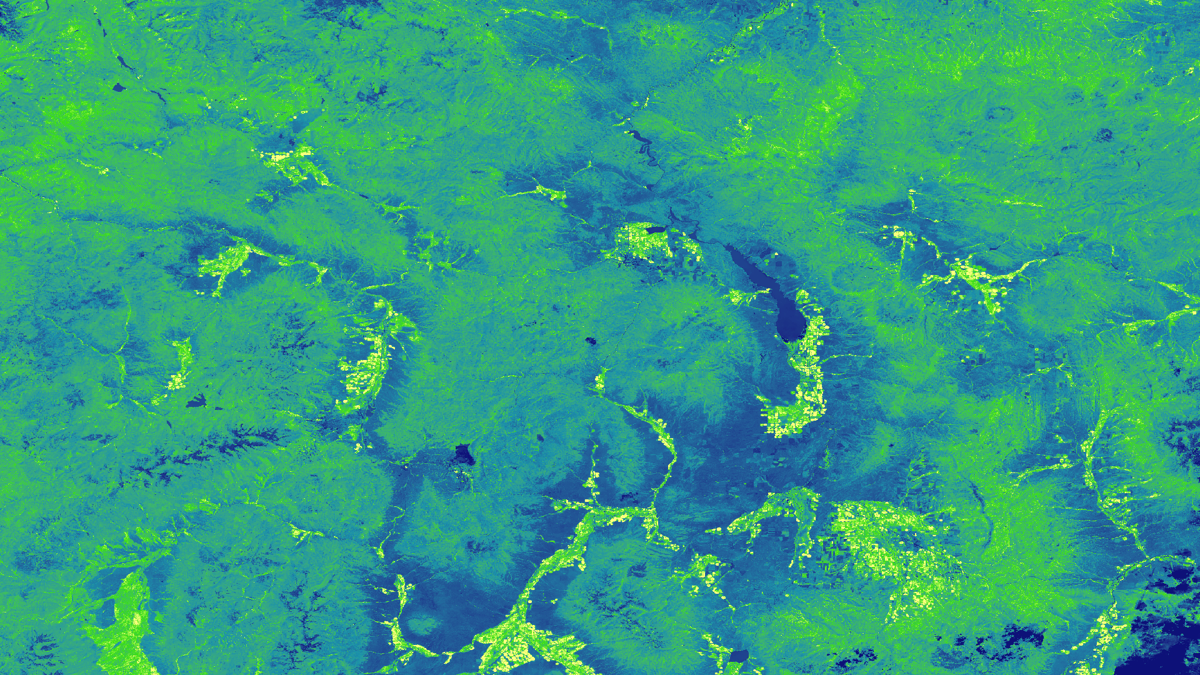
NASA

NASA
Tasseled cap greenness transformation derived from Landsat 8 imagery over lodgepole pine forest in the Intermountain West study area
Completed Projects
Miguel Villarreal
Wildfires increase flood and debris flow risk by increasing the fraction of rainfall reaching the soil surface and reducing the...
Guy Schumann
Machine Learning (ML) brings significant advances in the area of disaster impact mapping and predictions. However, the biggest challenge facing ML and...
Dave Jones
This Phase I study effort will begin the process of increasing exposure of NASA’s Wildland Fire Management Program and data with the Moraga-Orinda Fire District in California by using GeoCollaborate, a NASA SBIR Phase III innovation that enables access and sharing of disparate trusted data...
Joel T. Johnson
The incorporation of soil moisture information into wildfire prediction is becoming increasingly important, as has been shown in recent works relating pre-season soil moisture and seasonal anomalies to wildfire activity. The use...
Shubharoop Ghosh
Catastrophic wildfire economic losses in recent years underscore the need to more accurately estimate vulnerability, loss potential, and future risk to support effective risk management decisions. This research...
Pete Robichaud
We are collecting specific field and Earth Observation (EO) data after...
Thomas Buchholz
Wildfire probability maps are a key data source for allocating resources to manage fire adapted forests and protect communities and infrastructure. This project will...
Mary Ellen Miller
Wildfire is a known agent of change significantly altering vegetation and soils of burned watersheds. Quantifying and understanding the dynamic impacts of wildfire are vital for...
Ashley Ballantyne
Fire and other climate driven disturbances are shaping the future of our forests. Given the vital ecosystem services provided by forests, it is crucial that we manage forests for their continued existence under...
Julianne Liu
Team: Ritisha Ghosh (Project Lead), Richard Kirschner, Ria Mukherjee, Raina Monaghan
Summary: Wichita, Kansas is experiencing a host of climate threats, particularly extreme heat manifested through Urban Heat Islands (UHI). Heat is unevenly distributed within cities due to factors such...